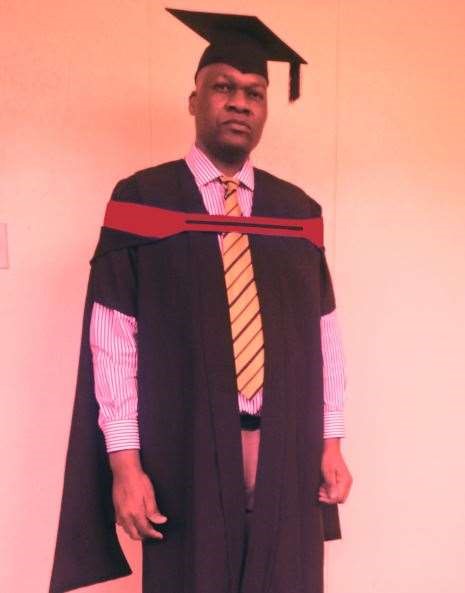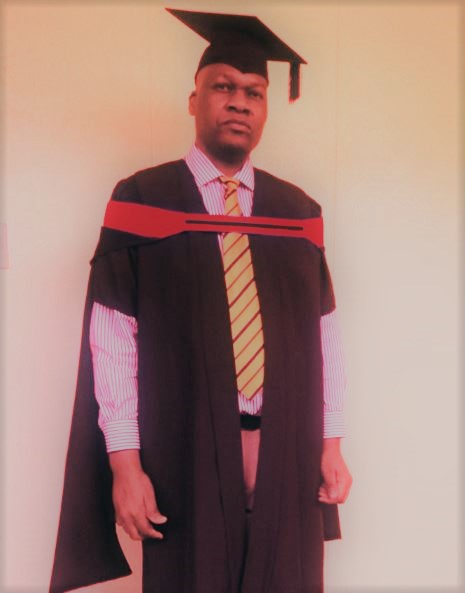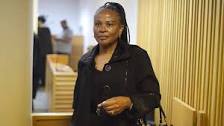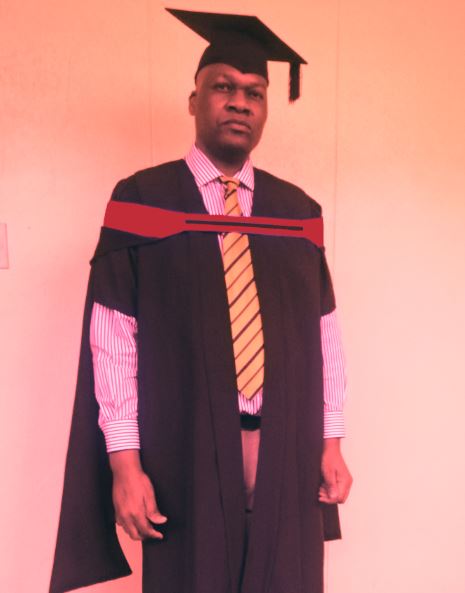ELECTRICITY THEFT AND THE IMPACT OF LOADSHEDDING ON THE ECONOMY IN SOUTH AFRICA
This article's main goal is to examine and identify weaknesses in our legal system, South African criminal law, and how it should be applied to crimes involving theft of electricity. It also examines the consequences of such crimes and how common law determines whether such crimes should be considered felonies under the law. It is based on the development of the theft laws in Roman, Dutch, English, and South African law. This examination is conducted under the presumption that traditional types of property, such as corporeal and incorporeal, are covered by the law on theft. So, the question arises as to whether non-traditional kinds of property, such as electrical theft, are or can be recognized as being stolen property for legal purposes.
ELECTRICITY THEFT AND THE IMPACT OF LOADSHEDDING ON THE ECONOMY IN SOUTH AFRICA
Theft of electricity will be explored in relation to theft of movable corporeal goods, incorporeal theft, and the evolution of the common law and legality concept. This paper will discuss the aforementioned difficulties that are brought up by the case of S v. Mintoor, which showed that the South African courts were not inclined to extend common law to include theft of incorporeal goods other than money. On the basis of legal precedent, theft of incorporeal will also be examined. We also need to keep in mind that property is protected by the law of theft, which up until now has only applied to conventional kinds of property. It may be argued that the question is irrelevant given the definition of theft.
“An appropriation of a characteristic”.
Electricity is created at a cost using fuel sources which power turbines, is inserted into a grid at points whereof there are consumers who are permitted to receive and use such electricity subject to terms and conditions, especially the obligation to pay for the right to receive measured quantity of electricity. The energy does not exist as an abstract concept it exists in the form of energizing electrons. The electrons which are drive, and which, when we traveling, we call it electricity.
As electrons are driven, they have a characteristic called electricity. The characteristic which attaches to the electron is the energy by which it moves. That characteristic is consumed when the electricity passes the discussion in relation to theft of incorporeal, mobile corporeal goods, and through a load in the customer's home on the customer's circuit is the crime of stealing electricity. The consumer's load receives the energy transfer (a kettle, a light, or other electrical appliance)
2.1. QUESTIONS OF LAW
The incident primarily raises the following legal issues: Which obligations are fatally damaged by a breach of electricity or a divergence, or whose sectors are they a part of? There are at least three sub questions in this question, in addition to one legal question:
I hope to tackle the following four questions in this article: Whether our evidence and criminal laws meet the requirements of our current laws in the country.
3. CORPOREAL AND INCORPOREAL PROPERTY
3.1. Corporeal property
It is the original class of objects that early Rome recognized as property. All material objects that can physically be touched are included. Additionally, it includes anything that can be perceived by the five senses. In South Africa, where the concept of corporeal property is likewise recognized, physical objects that are a part of a palpable reality are once again referred to as corporeal property. A thing that can be "perceived" through sight or touch is referred to as a palpable reality. It must also be perceivable using any of the five conventional senses. It's vital to remember that the present definition of corporeal property has recently come under heavy criticism. a reliance on an object's tangible nature.
3.2. Incorporeal Property
Historically, it has been debatable whether or not incorporo-real objects should have property rights. This was the case because it was thought to be irrational from a legal standpoint to say that a right is also the object of a right while also defining property as an object of a right. Despite this ambiguity, it soon became clear that property rights shouldn't always be restricted to material possessions. S v Kotze and Nissan South Africa (Pty) Ltd v. Marnitz NO serve as clear instances. These instances show a trend in favor of recognizing incorporeal item property rights. By doing this, they reiterate the notion that property rights are or ought to be not restricted to material possessions. Kotze handled money.
4. SOUTH AFRICAN LAW
The mixed or hybrid legal system serves as the foundation for South African theft law. Its guiding principles combine elements of both the English and Roman legal systems (as inspired by the Dutch legal system). In 1652 and 1795, respectively, the Roman-Dutch and English legal systems were introduced to the Cape of Good Hope. In South Africa, a study of theft's fundamentals typically combines English and Roman-Dutch elements. These concepts have changed throughout time and have undergone many adaptations to accommodate various new difficulties. The evolution of theft law in South Africa is looked at. Examining stealing both traditionally and through customized modifications.
4.1 Traditional description
In South Africa, it is customary to view stealing as equivalent to an unauthorized concrectatio, meaning that the touching or handling is still present. The concertation must have been unlawful or wrongful, or it must have been. The traditional definition of stealing is said to be flawed in a number of ways. First of all, it presents a problem because the needed concrectatio presumes a tangible or physical control over property. It exhibits a complete disdain for the reality that other non-traditional kinds of property, such as electricity, are inherently incapable of being touched or handled physically. Therefore, it disregards the possibility of a concrectatio in relation to this attribute in situations where the actual or physical assumption of a property purport to be electricity.
4.2. Adapted description
In South Africa, the law regarding stealing has only recently been created. As a result, when an analysis of the tenets of the law of stealing is done, appropriation, an English principle, has come to be accepted rather than concrectatio. Snyman justifies the switch in South Africa from concrectatio to ap-appropriation. He says the following:
When the economy was relatively agrarian and based primarily on agriculture centuries ago, Concrectatio may have been a suitable criterion. Unless one discards the original meaning of the latter term and uses it only as a verb, it is considerably preferable to use the more abstract idea of appropriation to describe the act of theft in today's world with its far more complex economic structure than the word concrectatio.
Here, the term "appropriation" refers to the intention to deny the owner of the advantages of ownership. Simply put, it involves taking over another person's property or exercising control over it. This control need not involve touching or handling the object being controlled. It is compared to obtaining property-related possession.
The Ndebele case is significant in this article (see Merga case), as it vehemently denounces the court's ruling in the Mintoor case. In the Mintoor case, the court had to rule on whether or not electricity could be stolen. In response to this query, the court reiterated its stance that items without a material existence cannot be stolen. As a result, it was claimed that electricity is energy, and that energy cannot be taken. According to this line of thinking, the court in the Ndebele case concluded that the Mintoor decision ignored prior precedent and failed to take current changes in the law of theft into account. The accused (Nde-bele and others) in the Ndebele case were accused of a number of offenses, including stealing electricity and vending machines that belonged to Eskom. It was simple to define the policy with relation to machine theft. There was a contract created in connection to these tangible items or properties. The most challenging query was whether electricity could be stolen. In other terms, is it possible to create or control electricity? As a result of the Mintoor case ruling stated as follows:
"It seemed to me that there was more than a remote chance that electricity could actually be stolen, and that the law had already progressed by decisions involving the theft of incorporeals. As a result, the court considered the significance and meaning of concrectatio in relation to South Africa's stealing statute. It agreed that only corporeal or moveable items are subject to theft under Roman-Dutch law. Concrectatio, however, is or should not merely be established by the acquisition of a "characteristic which attaches to an item and by depriving the owner of that characteristic," the court ruled after applying Harper.”
This is the case because if it were to be held that:
“Electricity is incapable of being stolen, then anyone would be entitled without permission of the owner to attach a load to his batteries and deplete the energy within them, rendering them useless. Yet nothing will have changed”.
In view of the aforementioned, the court conclude that electricity can, even though it amounts only to energy and is incorporeal property, the object of theft. Furthermore, the courts have also read the principles of theft to mean that appropriation can be undertaken in respect of other intangible or incorporeal objects. An example is the case of Graham, in this case, company (A) was on the verge of being liquidated. During this period, A received a cheque amounting to thirty-seven thousand one hundred and fifty-three rands eighty-eight cents (R137 153.88). It was later established that the cheque had been erroneously sent to A. A Managing Director of A (Graham) was aware of the mistake. Graham was charged in his personal capacity with the theft of the cheque and or the sum of money paid to A.
The court stated that principles of theft are founded on a flexible and adaptable system. In addition, this flexibility enables the system to be in touch with the current realities and to be able to respond to existing societal conditions.
5.ELECTRICITY THEFT AND ITS EFFECTS
The South African Law Commission (SALC) did not deal with the question whether theft of incorporeal “property” should be criminalized, neither is there any provision dealing with this issue in the Electronic Communications and Transactions Act of 2002, our legislator is silent on the issue, and it may be argued that they have decided to leave this aspect over to the judiciary. If not, a suitable provision would have been included in the Act. Eskom, a South African government-owned power distribution company, has lost billions of rands in annual revenue owing to electricity theft more specifically, the cable theft. Electricity theft is also one of the contributors to load shedding in South Africa, which threatens the country’s development prospects. It is not a statutory offence in South Africa. In response to the electricity crisis, a number of countries substantially increased the coverage of their electricity safety nets in order to restore confidence and to avert potential contagious runs on their energy sectors. The electricity industry is undergoing considerable changes around the world. The key global trend in the electricity sector is to move away from centralized generation and distribution monopolies to more localised and integrated electricity systems. Increasingly, new players are becoming involved in generating and distributing electricity at a local level. Electricity Regulation Act 6 of 2006. New Generation Regulations of 2011 (published as GNR. 399 in Government Gazette No. 34262 dated 4 May 2011) provides regulations targeted specifically at government structures and outlines the rules for the procurement and new generation capacity of electricity by organs of state. The regulations state that the Minister of Energy may make a determination as to whether any new generation capacity shall be established by Eskom, another organ of state or an Independent Power Producer (IPP). If the new generation capacity is established by an IPP then the Minister (Dr Sputla Ramokgopa) may also determine the identity of the buyer or, where applicable, the procurer and the buyer. The REIPPP is a programme managed and controlled through such determination.
Renewable electricity (RE) is generated by resources that are easily replenished, such as:
- wind – 3.8%
- Concentrated solar power – 1.77%
- Solar – 1.77%
- biomass and
- hydro power
Renewable electricity generation, therefore, refers to electricity from non-traditional forms of base load generation, such as large-scale coal and nuclear. South Africa have come up with a integrated unbundling plan of which aims to reduce and minimise the load-shedding in our country. The new technology was introduced in order to deal with the crisis, and substantive balancing mix techonology was introduced:
(a) Balancing Costs
Balancing costs are the costs of having electricity reserves in place to accommodate the difference in forecasted generation and the actual generation from RE facilities. For example, a wind farm may forecast production of 100MWh but only manages to produce 80MWh. The system still needs to have the additional 20MWh in reserve. The cost of maintaining this reserve is called the balancing cost. (b) Grid Parity
Grid parity refers to a situation where the cost of producing energy from a renewable energy source is similar to, or less than, the cost of purchasing energy from the traditional electricity grid.
(c) Integrated Resource Plan (IRP)
The IRP is the National Electricity Plan and is a subset of the Integrated Energy Plan (IEP). The IRP directs the complete expansion of the electricity supply over the long term. The IRP lists targets for gas,solar photovoltaic (PV) systems, but also include other technologies such as wind and biogas. A SSEG customer generates electricity on the customer’s side of the municipal electricity meter, to which the generation equipment is connected, and which is synchronised with the municipal electricity grid (i.e., ‘embedded’eneration of electricity from different technologies, such as coal, nuclear and various renewable energy technologies.
(d) Wheeling
Wheeling refers to the transportation of electricity from a generator to a customer using the electricity grid. Since the wheeling of electric energy requires the use of transmission and/or distribution infrastructure, there is often an associated fee paid by the users to the infrastructure owners. This fee is called ‘use of system.
Unbundling requirements
There are no mandatory unbundling requirements that apply in the market, given the nature of the sector at this point in time. There are no particular restrictions on the ownership or operation of generation, transmission, distribution or storage assets, other than the requirement to hold the appropriate licence. From a procurement perspective, requirements about local equity ownership, broad-based black economic empowerment, economic development and local procurement may be introduced from time-to-time. It is important to take specific advice on this when anticipating entry into the South African market. Power trading is permitted between private entities, provided a trading license is held and the ability to utilize the grid is available. Significant backlogs in the awarding of licenses currently exist and specific regulation on the criteria for the awarding of licenses is awaited. Grid access is controlled by Eskom and the municipalities and because the on-selling of electricity by municipalities constitutes a significant source of income, some reluctance to permit third party access to the grid for trading purposes is often encountered. This is one of the primary obstacles to the creation and sustainability of a freely-traded electricity market in South Africa.
In August 2018 Integrated Resource Plan does not envisage Eskom adding any plants to its coal fleet beyond the current Medupi and Kusile power plants, with the anticipated decommissioning of around 18 GW. The established integrated plan aims to unbundle the resource energy in the following three segments, which includes:
(a) Generation
The Eskom coal-fired power plants dominate the South African electricity market. By 2020 around 80% of the energy mix will use coal as its primary source. With the decommissioning of Eskom coal-fired power plants and the introduction of gas, solar, wind, hydro and concentrated solar power, it is anticipated that coal in the energy mix will drop to below 50% by 2030. (b) Transmission
Eskom is vertically integrated and is the national transmission company responsible for the expansion, ownership and maintenance of the South African national grid. (c) Distribution
Eskom has a distribution license, but municipalities (third tier of government) are mostly responsible for electricity distribution. In fact, the right to distribute electricity by municipalities is, subject to some exceptions, their sole domain. Municipalities will therefore purchase electricity at a regulated price from Eskom or an independent power producer (IPP) and on-sell the same at a regulated margin to the end users. Where municipalities procure power from IPPs in addition to Eskom, municipalities will act as the system operator for the municipal distribution system, with Eskom being the transmission system operator.
There are also conflicting High court decisions on whether electricity theft is a common-law offence or an offence at all. The constitutional Court is yet to decide the question. Eskom a power producer and supplier of electricity evidenced a huge electricity problem. Eskom put various measures in place to address the issue of electricity theft. These have included “educating the public about the consequences of infrastructure and electricity theft, including illegal connections”, and installing smart prepaid meters. Eskom launched an electricity saving campaign known as Operation Khanyisa and has the support of Business against Crime of south Africa (BACSA), Business Unity South Africa (BUSA), Primedia Crime Line, Proudly South African and the South African Local Government Association (SALGA). Theft of electricity is extensively dealt with in the Electricity Act.
The Act provided that:
“Any person who without legal right abstracts, branches off or diverts or causes to be abstracted, branched off or diverted any electric current, or consumes or uses any such current which has been wrongfully or unlawfully abstracted, branched off or diverted, shall be guilty of an offence and liable on conviction to the penalties which may be imposed for theft”.
The Electricity Act was repealed by the 2006 Electricity Regulation Act.17However it is important to high light section 27 here because in interpreting it, the courts found two weaknesses. First it did not address all the kinds of electricity theft. For example, it was silent on fraud and on stealing electricity. The second weakness was that it would have been unconstitutional, and therefore invalid, because it created a reverse onus18, it required the suspect to prove existence of a right if he or she was to escape conviction, which is contrary to be presumed innocent and remain silent. In Ndebele, the court considered that if it were “to find that theft of electricity was a crime, it might result in creating a new offence”. The court refused to follow the reasoning in Mintoor. It is argued that the national legislature would have to amend the Electricity Regulation Act or another piece of legislation such as the Criminal Procedure Act 19 to provide expressly provide for the offence of electricity theft. This offence should then address all types of electricity theft. In doing so, the South African parliament could refer to legislation from different countries on this issue. Eskom Act of 1987 did not allow Eskom to institute prosecution. In 2007, the Eskom Act was repealed by the Eskom Conversion Act 20 of electricity theft in South Africa is committed not only by poor people but also by very rich companies.
6. CONCLUSION
The fundamental premise on the law of theft both in Roman and South African law of theft is that there must be a concrectatio of or over property. This entails an assumption of control of or over the property of another. The object of concrectatio must thus be to permanently deprive the other person or owner of the benefits of property. Also, it must be made with the necessary animus. Although this position seems to have been subsequently reformed, the current position is that a concrectatio over property must still exist.
Given the fact that electricity cannot be touched or handled, concrectatio in respect of this property is impossible. Appropriation requires that there should be a definite or actual meddling with the property of another before theft can be deemed to arise. This meddling must give rise to a physical taking and carrying away of property. The description of theft in South Africa was adapted to accommodate new developments in our legal system.
These developments resulted in the existence of new forms of property which were conventionally regarded as wholly or partially incapable of being stolen or being included into the category of property capable of theft. However, these developments in the law of theft fail to adequately respond to the question of whether it is legally possible to steal electricity. This conclusion is drawn from the fact that the existing principles of theft continue to perpetuate the view that theft amounts to an actual or physical control of property.
It is proposed that a change in thinking is necessary. This shift should be in line with current developments. This does not necessarily entail that the principles of theft need to be developed. It simply affirms that electricity may be appropriated, although differently from the traditional methods. Therefore, concrectatio in respect of this property ought to be concentrated on the appropriation of its characteristics, namely, energy and the eventual deprivation thereof. Accordingly, any change or alteration to the principles of theft should be minimal. In particular, the change ought to be brought about in a manner which retains the essential elements of theft. It appears to me that modern day society has already advanced and accepted that there can be theft of this nature. It has long been recognized that the abstract and incorporeal nature of a right which has been taken in the context of electricity credits is a loss.
Further if the legislature fails to criminalize this type of conduct, it is not the task of the courts to fill this vacuum merely because they think it would be a good thing to criminalize such conduct. It is the task of the legislature to do this. It is not the task of the court to fill what it considers gaps in legislation by itself creating a crime or extending the scope of an existing crime by analogy. Iudicis est ius dicere, sed non-dare- the task of a court is not to create law, but to apply it.
This is one of the cornerstones of our democratic Constitution, namely that the lines of demarcation between the tasks of the legislature, the executive and the judicial branches of government should not become blurred. I submit that developing the Common Law should be considered to encompass energy as a thing capable of theft. This issue will not be dealt with any further.
REFERENCES
Case Law
Nissan South Africa (Pty) Limited v Marnitz NO 2005 (1) SA 441 (SCA)
S v Graham 1975 (3) SA 569 (A)
S v Harper 1981 (2) SA 638 (D)
S v Kotze 1961 (1) SA 118 (SCA)
S v Mintoor 1996 (1) SACR 514 (C)
S v Ndebele 2012 (1) SACR 245 (GSJ) 27
Legislation
Criminal Procedure Act 51 of 1977
Electronic Communications and Transactions Act 25 of 2002
Eskom Act 40 of 1987
Eskom Conversion Act 13 of 2001
Journal Articles
D’ Oliviera JA (2012) THRHR
D’ Oliviera JA v S, ‘Theft of Electricity: A Short Circuit? S v Ndebele 2012 1 SACR
245 (GSJ)’ (2012) 75 THRHR 312-322
Mujuzi JD (2020) Obiter
Mujuzi JD, ‘Electricity Theft in South Africa: Examining the Need to clarify the Offence and Pursue Private Prosecution?’ (2020) 41 (1) Obiter 787.
Authentication
I, Samson Lehlogonolo Makalela, declare that this research proposal is the fruit of my own intellectual acumen. To the best of my knowledge, due credit was given whenever the illuminating ideas of others were used in my work.

Articles from Samson Lehlogonolo Makalela
View blog
THE RIGHT OF THE DIRECTOR OF PUBLIC PROSECUTIONS TO APPEAL ON QUESTIONS OF FACT · LS Makalela, LLB ( ...

By the time bumbling public protector Busisiwe Mkwebane lease the office, that institution will have ...

The effect of the implementation of Affirmative Action · and Equal Employment in South Africa · Mr.L ...
You may be interested in these jobs
-
Bookkeeper
Found in: Talent ZA C2 - 8 hours ago
Professional Resources Partners Pty Ltd Randburg, South Africa Full timeBookkeeper -Pastel Accounting / Payroll · Location: Randburg · Salary: R12 500 – R15000 · Duties: · Full debtors function · Full Creditors function · Reconciliation of accounts · Liaison with clients · Cashbook and petty cash · Minimum Requirements: · Proficiency on Pastel Accoun ...
-

Shared Services Clerk
Found in: Talent ZA C2 - 8 hours ago
O'Brien Recruitment Cape Town, South Africa ContractDo you thrive in a collaborative environment where every contribution matters. If you're ready to make a difference while advancing your career in a supportive and vibrant workplace, this opportunity is tailor-made for you. A well known and well established company is seeking 2 J ...
-
Night Auditor
Found in: beBee S2 ZA - 6 days ago
Marriott International Pretoria, South Africa Full timeJob Number · Job Category Rooms & Guest Services Operations · Location Protea Hotel Pretoria Loftus Park, 416 Kirkness Street, Pretoria, Gauteng, South Africa VIEW ON MAP · Schedule Full-Time · Located Remotely? N · Relocation? N · Position Type Non-Management · POSITION SUMMAR ...

Comments